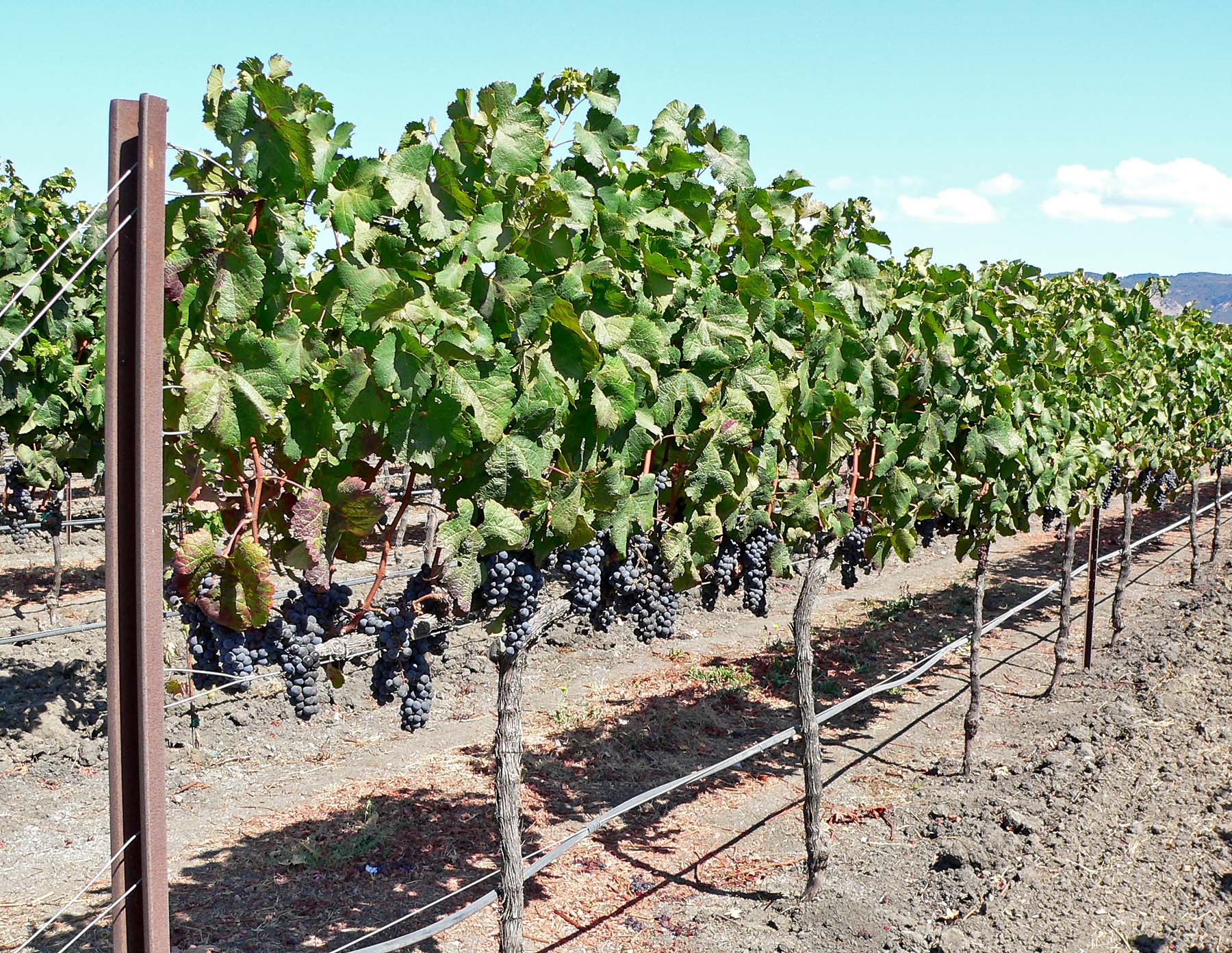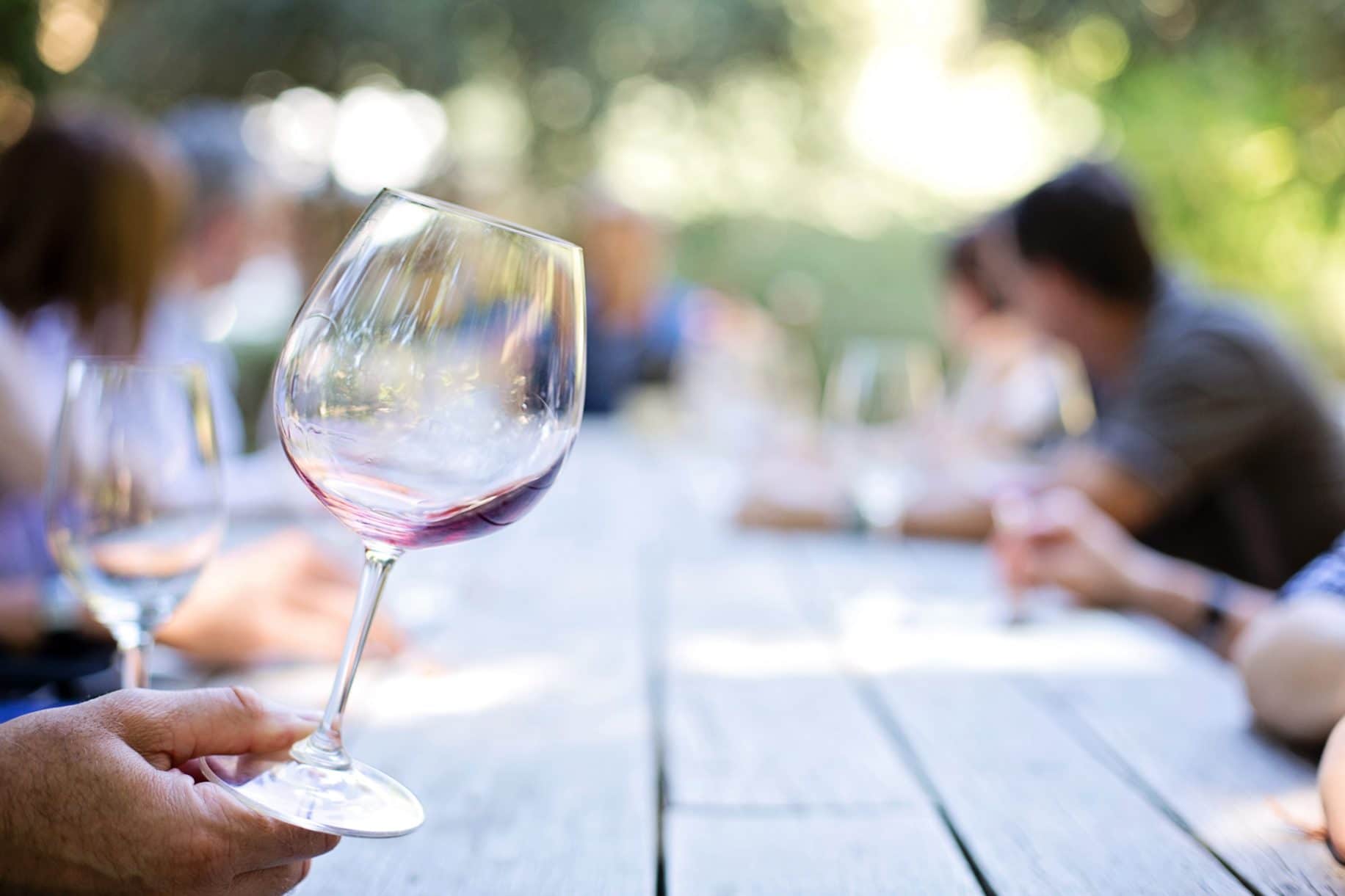I saw an eagle gracefully tracing circles over the vineyard and it got me thinking about the significance of life cycles, how various critters live out the circle of life…
Grape vines by definition isn’t a narcissistic variety, they are nurturers. That is why they tend to produce such vigor and fruit in abundance (with some notable exceptions). They are looking for those birds to consume the fruits of their labor and continue the cycle of life. They soak up the sun and desperately search for water in a gargantuan effort to not just survive but thrive for the sake of their offspring – their fruit. From my point of view it is as motherly as it gets… and that is where it all begins. Anyone that has spent 5 minutes in the wine world would tell you the proverbial cliché – great wines start with great grapes, great wines are grown in the vineyard, etc.
That would be 100% true.
Then it is onto “vineyard management”, which, granted, requires lots of skills and dogged dedication, but let’s face it, also is a fancy term for “grape torture” as most open and sincere vineyard managers would tell you… how many times have you heard the most brilliant growers in the industry talk about reducing yields? What do you think “dropping fruit” means? Or dry-farming? Or low-irrigation?
That means “no water for you” kind of “soup Nazi” deal, ah and yes, we’ll take of some of your “offspring” to be recycled through vertical “disintegration”, i.e. let it rot on the ground and become part of the soil… and be absorbed into that cycle of life. (Some of my vineyard manager friends talk of going straight to “grape hell”, should it exist, for the atrocities they have committed…)
Ironically after all the torture, the grapes get treated with velvet gloves, some notable wineries who have both the resources and the inclination even pick at night (mostly applicable to Pinot Nor crop) to maximize the cooling environment that preserves the integrity of the fruit.
In the life of a wine maker that is often the most stressful time, harvest, as it sets the tone for the entire vintage. Compromised fruit will never make great wine.

And last but not least comes you, the consumer (often through an obstacle course put together by a three-tier Monster, wholesalers, restaurateurs and wine shops). Wine travel is just that, a journey of self-discovery, a marathon of sorts. As you move along, the scenery and the pace changes, your physicality ebbs and flows but one thing remains – the experience of every turn… if you weren’t interested in that you would have chosen a sprint instead (and found satisfaction in a nearest bar). Wine journey is for seekers.
Most find that if you in search of depth and multidimensional experiences often end up dealing directly with wineries, so whenever possible, do yourself a favor and form those partnerships. Great wines offer an intimate experience that involves all senses and utilizes all of them, sometimes concurrently, sometimes all at once, both very exciting. They have lasting power and are memorable in an orchestrated sort of way when each note flows organically. We are meant to experience it as effortlessness yet each component is thought through, sometimes agonized over and has its special place. I hear stories of wines that, in the process, we tasted by many dozens of people who spend their entire lives around or in the wine industry in some capacity, direct, or indirect and therefore a final blend ends up bearing wisdom and touches of dozens of palates, unbeknownst to us…
They experience the wine at different stages, as it evolves in its cradle (barrel) and how it flows along the continuum. Some wines are early bloomers, some are not and it usually takes a much effort to coax its potential, more often than not by gentle guidance and resisting the temptation to control.
The Notable Notetaking…
Most winemakers offer their perspectives often in tasting notes that gives us a window into their world, their perception of their wine child.
I have always found wine maker notes to be a valuable contribution. However I was never a huge fan of tasting notes in general, even though they came easy for me (what can I tell you, biological advantageJ). Palates are inherently subjective, and does it really matter if you say “blackberry” and I say “black cherry”? What if you don’t dissect it at all, and simply say: “I really liked it!”
Don’t misunderstand, I, for one, greatly admire Parker’s incredible ability to discern the most esoteric of flavors, particularly in young wines, the mind boggles at the sheer volume of descriptors in his arsenal. However, as valuable as the tasting notes are (and I know how attached and invested most of you wine geeks are), at the risk of frustrating some of you, I will declaratively state that they play a fairly minor part in wine experience.
Geometry and Symmetry
I have heard of the “triangle” of soil, climate and Man (as I recall, most notably it was described by the legendary Brice Jones of Sonoma-Cutrer fame, who now crafts terrific Pinot Noirs under the Emeritus Label). I would add one more dimension to that… and that is the consumer, end-user, thrill-seeker… you fill in the blank. I feel the square is perhaps the more balanced figure and offers that symmetry I so often seek in life and in wine.
It is a symbiotic, fluid process that involves full participation and deep commitment on all parts for the sake of formulating the ultimate sum. (Now say that fast after two glasses of wine.)
No wine is complete until it is consumed and becomes our part of the cycle of life, both in the carnal, biological and spiritual sense. How it lands on our table is less important than how it lands on our soul.
Many people debate soils, climates, price points and scoring systems. I say the scorecard of the wine would be greatly compromised in numbers alone. Is it helpful? Sometimes.
Here is an experiment for you.
You will need the following equipment:
- A copy of Robert Parker’s Wine Advocate (if you don’t know who that is you have been living under a large rock that has obscured the entire wine Universe)
- Passion and open mind.
Now remove all the scores. No cheating.
Would you still read it?
I bet you would and here is why: Some of his best writing is not in numbers, but in storytelling, not in enumeration and elaborate description of flavor profiles, but the profile of the wine itself, its character, stamina and its very essence. Perhaps it is a sort of a blind tasting by reading… try it sometime.
The wine story starts in the vineyard but ends with you and only those in the business that fully understand that truly strive for greatness. No compromise is a sign of respect for you, the consumer, first and foremost.
The best part is wines that are true to their “sense of place”, or “terroir”, that are well brought up and nurtured. Great climate is a given in CA, for instance, unlike what other wine regions constantly struggle with, weather whimsy and lack of sunlight. They blossom into these mature offerings full of character, meaning and yes, sex appeal! I don’t know about you but I don’t want some ingénue in my glass, I want expert seduction.
Having downgraded the tasting notes, I want to make clear that not all wine notes are the same and there are some I rather enjoy for an entirely different set of reasons. Rooted in legitimate info and experience they are as playful as they are powerful. I used to blush when I read Parker, it was soft wine porn all the way, still is. I don’t blush anymore, and I appreciative the meaning even more.
If a great bottle of wine never turned you on, you haven’t lived, my friend. I experienced wine Viagra way before the term was invented and I am proud to admit it. I really hope you have too…
I think some of the misconceptions and gripes about California wine (especially Pinot being accused of being Syrah-like, etc.), general ripeness and alcohol levels are really about winemaking shortfalls, lack of character and balance. Restraint for the sake of restraint is just that. Nothing exciting about it… now the restraint that leads to something is another matter altogether. I am a fan of slow seduction, but I need to know that’s what it is, I need to feel it. Great wines unfold on the palate and consume your whole being. They are lush, opulent and a little bit dangerous. Now which one of us is not up to a 16 hr orgasm? (I remember when Sting announced his sexual prowess how envious we all were, I was most disappointed when he revealed years later that it was really closer to an hour coupled with 15 hours of begging his wife for sex…still, an hour isn’t bad.)
We all want great legs, long finish… etc., but does that mean really?
I say we want to be captivated, seduced and for the experience to be memorable, even unforgettable. Now that is a tall order, yet I am here to tell you which is highly achievable and remarkably simple once distilled to the bare essentials.
More on that soon… stay tuned.





You must be logged in to post a comment.